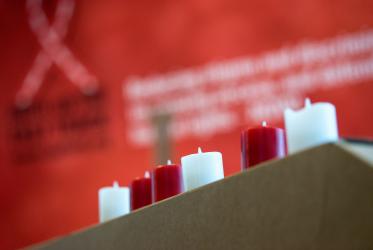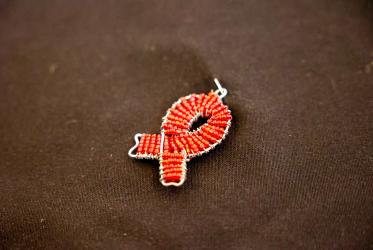The World Council of Churches (WCC) Ecumenical HIV and AIDS Initiatives and Advocacy programme sponsored an intergenerational workshop on HIV, masculinities, femininities and sexual reproductive health education for 35 adolescents, young people, theologians, and religious leaders from 28-30 October at the Village du Benin, University of Lomé, Togo.
The main agenda was to provide a safe space for adolescents and young people to voice their stories, and name realities, challenges, joys and wisdom on key issues that will help the community. The goal is to better respond to and prevent HIV; advocate for gender justice; and provide effective sexual reproductive health education. Young people also talked about masculinity and femininity and the link between gender inequalities, HIV and sexual and gender-based violence in their daily lives.
Participants from the Evangelical Presbyterian Church of Togo, Assemblies of God, Evangelical Lutheran Church of Togo, Pentecostal Church in Togo, Protestant University of West Africa from Benin, and the Protestant Methodist Churches in Benin and Togo listened to one another, and reflected on the importance of working with adolescents and young people who are vulnerable to HIV.
Rev. Dr Timothée Agonma Gandonou, from the Protestant University of West Africa, Benin, insisted on the need to have regular safe space and literature to help build synergies in the HIV response.
Ayoko Bahun-Wilson, WCC Ecumenical HIV and AIDS Initiatives and Advocacy regional Coordinator for West Africa, stressed the importance of young people feeling confident and safe to speak out and name their needs. “We must rework our strategies while considering the various challenges faced by our children, our adolescents and young people in their homes, their schools, their churches and their communities,” said Bahun-Wilson. “This will help us to have a sound conversation based on mutual respect and honesty.”
Discussions focused on breaking the taboos around sexuality; and revisiting and continuing to deconstruct masculinity and femininity at home, school, church and other places of education. Participants acknowledged adolescents and young people as resource persons who are able to explain, showcase and tell their stories and lessons learned to help others.
The group recommended reviving youth chaplaincies in schools and universities to help adolescents and young people voice their challenges and seek proper help and support. In addition, a young person said: “Prayer alone is not enough. We need actions to accompany adolescents and young people to embrace positive masculinities and femininities.”
Rev. Godson Lawson-Kpavuvu, chairperson of the International Reference Group of the WCC Ecumenical HIV and AIDS Initiatives and Advocacy programme, invited participants to use as widely as possible the handbook Positive Masculinities and Femininities: Handbook for Adolescents and Young People in Faith Communities in Nigeria from which key modules were drawn for the workshop. Participants will be able to conduct their own workshops and share with their peers with the hope of reducing peer pressure, building self esteem and breaking the silence on sexual and gender-based violence and sexuality.
Learn more about WCC’s Ecumenical HIV and AIDS Initiatives and Advocacy (WCC-EHAIA)








